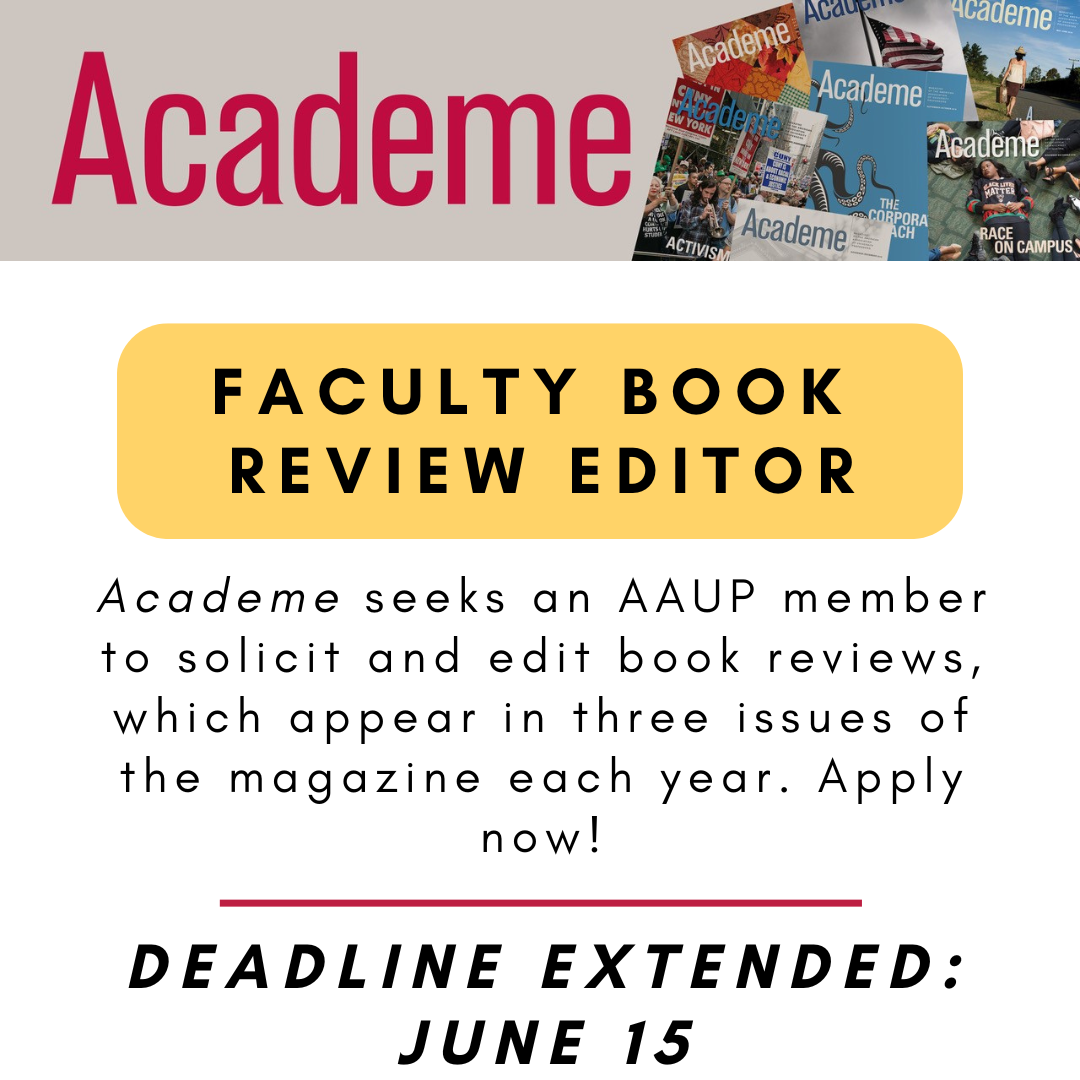- About
- Programs
- Issues
- Academic Freedom
- Political Attacks on Higher Education
- Resources on Collective Bargaining
- Shared Governance
- Campus Protests
- Faculty Compensation
- Racial Justice
- Diversity in Higher Ed
- Financial Crisis
- Privatization and OPMs
- Contingent Faculty Positions
- Tenure
- Workplace Issues
- Gender and Sexuality in Higher Ed
- Targeted Harassment
- Intellectual Property & Copyright
- Civility
- The Family and Medical Leave Act
- Pregnancy in the Academy
- Publications
- Data
- News
- Membership
- Chapters
AAUP Investigates Dismissal of Part-Time Faculty Member
In March, the AAUP published online an investigating committee’s report on the fall 2016 dismissal of Nathanial Bork, a part-time instructor of philosophy at the Community College of Aurora in Colorado. Bork’s section of Introduction to Philosophy was in its fourth week when the administration notified him of the termination of his appointment, ostensibly because he had failed adequately to implement curricular changes designed to improve pass rates in entry-level general education courses. Bork had been a vocal critic of these administratively driven changes, claiming they made the courses easier and shortchanged students, and a week earlier had shared with administrative officers a draft letter in which he sharply criticized the new curriculum, informing them that he intended to send the final version to the Higher Learning Commission (HLC), the college’s accreditor. The administration did not afford Bork an opportunity to contest his dismissal with a faculty hearing body.
The investigating committee found that the administration, in declining to afford Bork a faculty hearing, had dismissed him summarily in disregard of the 1940 Statement of Principles on Academic Freedom and Tenure and Regulation 13 (Part-Time Faculty Appointments) of the derivative Recommended Institutional Regulations on Academic Freedom and Tenure. The committee also deemed credible Bork’s allegation that the administration terminated his appointment because he had conveyed his intention of sharing his critique with the HLC, an allegation that remained unrebutted in the absence of an appropriate procedure. As a result, the committee found, the administration’s action “implicated basic tenets of academic freedom, as set forth in the 1940 Statement of Principles on Academic Freedom and Tenure.”
With respect to broader implications for the academic freedom of part-time faculty members, the committee reached the following conclusion: “Mr. Bork’s case highlights the very clear threat that a lack of due process [for part-time faculty members] poses for the exercise of academic freedom and underscores the general unacceptability of such policies, at CCA and elsewhere. Under these conditions, the academic freedom of adjunct faculty members is not universally guaranteed as a matter of institutional policy but selectively bestowed as a function of administrative benevolence. That is to say, it does not exist.” The committee added a warning coupled with a call to action: “As the proportion of the faculty employed in adjunct and other contingent positions grows, the overall academic freedom of America’s faculty shrinks. The private business model of academic employment, in which managers exercise complete control over the working conditions and appointment status of those they oversee, is already a reality for the majority of those who teach at US colleges and universities. If we wish to maintain academic freedom for the ever-shrinking proportion of the faculty who enjoy tenure-track and tenured appointments, we must extend the guarantee of academic freedom—through changes in institutional policies, professional norms, and, ultimately, personal attitudes— to those who do not.”





